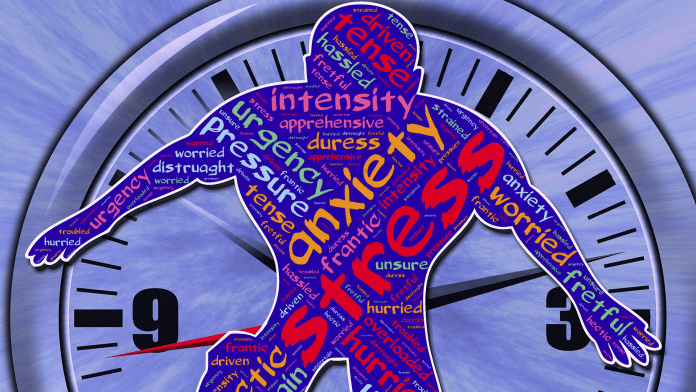
Those with chronic anxiety see sympathetic nerve activity, which is linked to regulation of blood pressure, increase during mental and physiological stress, which could leave them at risk of high blood pressure and heart disease.
Published in the Journal of Neurophysiology, the study saw researchers from the University of Iowa, USA, analyse two groups that had recently experienced physiological and mental stress. One group had chronic anxiety, while the control group did not.
The volunteers hands were placed in an ice water bath for two minutes in order to see how they reacted to physiological stress. Following a short recovery period, they were then asked to solve a simple maths problem as fast as they could to induce mental stress.
What did the research find?
After studying the rate of blood flow and blood pressure, samples of blood revealed that the chronic anxiety group had higher levels of norepinephrine, a hormone that sympathetic nerve fibres release in response to stress, before testing began.
Norepinephrine causes blood vessels to contract, which in turn raises blood pressure.
During the ice bath and maths activities, according to the research team, the increase “was significantly greater among [the anxiety group] compared with [the control group], suggesting an enhanced sympathetic anticipatory response”.
During the two-minute countdown, the heart rate increased, another sign that the anticipation of impending stress or discomfort caused physiological changes in the body. However, there was no significant difference between the chronic anxiety and control groups.
The researchers wrote: ‘Future studies are warranted to determine whether augmented [sympathetic nerve activity] is associated with deleterious end-organ consequences in persons with anxiety and cardiovascular disease or cardiovascular disease risk factors.’
About anxiety
Figures from the World Health Organization find that an estimated 83 million people are being affected by mental health issues.
Symptoms of anxiety include:
- Palpitations;
- Shaking and trembling;
- Chest pains or tightness; and
- Nausea or gastrointestinal problems.
Source: American Physiological Society









